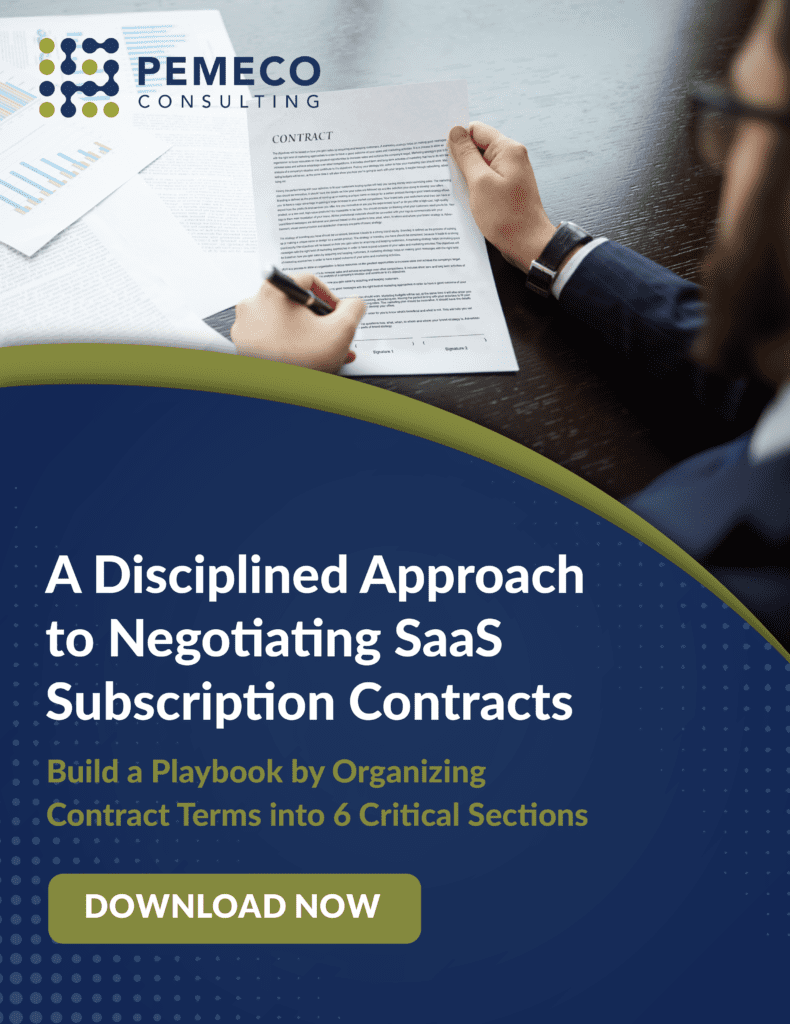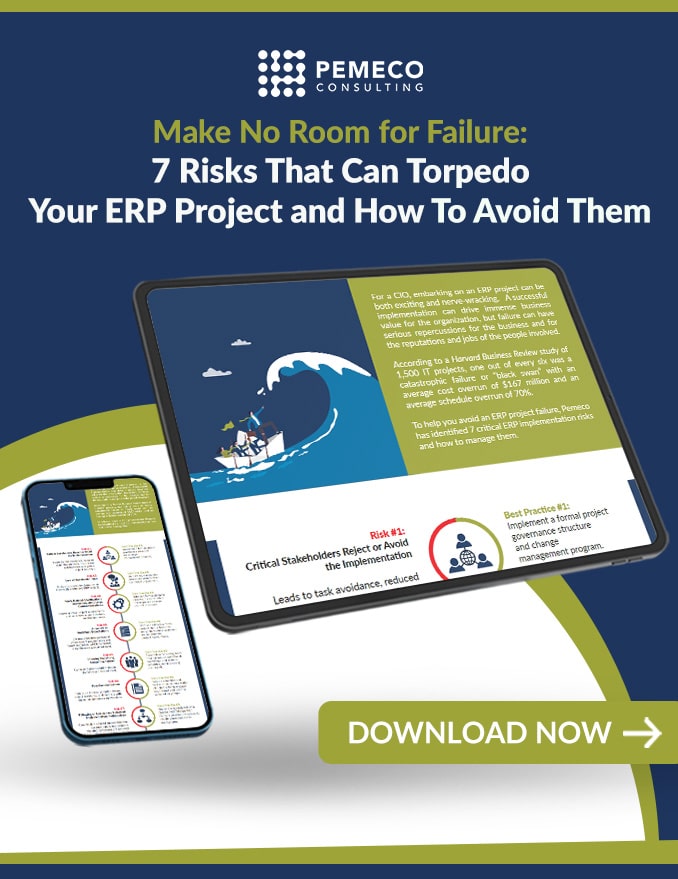Whether it’s MillerCoors, National Grid, or Revlon, there’s no shortage of high-profile ERP implementation failures. Often, the cause is easy to identify: poor ERP implementation planning. You can predict ERP success or failure based on how prepared the company is.
There are three key indicators that your project may not be ready for an ERP implementation:
- Your team doesn’t understand the project scope, and the project isn’t properly chartered.
- Project teams aren’t established.
- Key project stakeholders don’t understand their responsibilities and commitment requirements.
Before signing ERP software and service contracts, it’s crucial to hit specific ERP implementation steps and milestones. You must check the above boxes and ensure your company is on the right track before the train leaves the station. That way, you get started on the right foot and position yourself for a successful ERP implementation project.
3 Key Milestones to Preparing Your Organization for Implementation Success
The following three milestones can serve as your pre-ERP checklist as you get ready for your implementation.
Key Milestone #1: Project Teams Are Engaged and Governance Is Defined
Unless you clearly define your governance system, crucial activities and deliverables may slip between the cracks. It’s important to clearly delineate each stakeholder’s responsibilities. Use an org chart to vertically describe the responsibilities of the steering committee, project manager, and core team.
You also need to delineate responsibilities horizontally. This may require asking questions such as, “Who handles data migration—consultants or an internal team member?” Once you’ve outlined these roles, document them. That way, team members can refer to them throughout the ERP implementation process to avoid confusion or disorder.
Key Milestone #2: Define a Clear Project Scope With Firm Implementation Boundaries
Scope creep can impact your schedule and implementation costs. If not kept in check, your project can get derailed, run off the tracks, and crash into a twisted pile of cost overruns and disorganization.
To avoid this, it’s important to specify a tight project scope. You also need a scope management plan that ensures the team presents any scope adjustments to the steering committee for review and approval.
By default, the steering committee should refuse any changes to the project’s scope. Changes should only occur when there is a compelling case that the cost and schedule impact of scope change would be offset by meaningful business value.
Key Milestone #3: Negotiate Appropriate Software and Service Agreements
Software and service agreements are crucial for defining implementation scope from the start. It’s pivotal that your software and service agreements:
- Include appropriate price discounts for the initial term and any renewal terms.
- Align required software, modules, and compute requirements with the scope.
- Line up professional services obligations with the scope and responsibility assignments.
- Allocate responsibilities and liabilities for breaches of service delivery and software performance.
- Provide sufficient protections for data and security.
It’s much easier to negotiate and establish these parameters in the early phases of ERP implementation than it is to redefine them later.
Score Your Organization’s Readiness for ERP Implementation
Business leaders must avoid the temptation to rush head-first into implementation. As history testifies, a lack of preparation exposes a company to significant risk during the ERP implementation process.
ERP implementations succeed when your project is well structured. At a minimum, you need to ensure that your teams are ready, you’ve defined scope and plans, and have negotiated the right contracts.. However, these are but a few of the key readiness criteria.
Don’t guess whether you’re ready for your ERP implementation project. Download this comprehensive ERP implementation readiness self-assessment to score your organization’s preparedness and identify actionable risk mitigation and preparation strategies.





